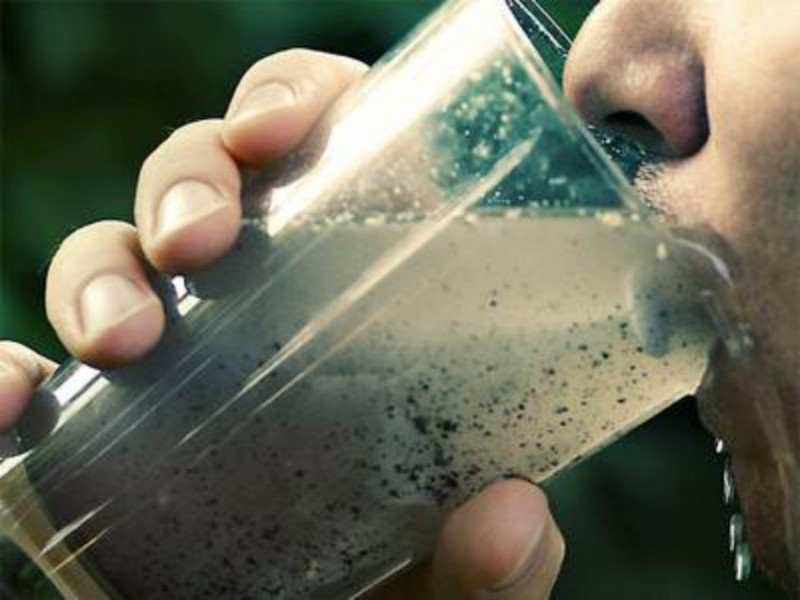 FRIDAY, FEBRUARY 16, 2018 – “On Thursday, Environmental Protection Agency Administrator Scott Pruitt hosted a lead summit at the agency’s headquarters. This meeting comes in the wake of the Trump administration’s proposed 2019 budget that calls for slashing EPA programs for lead abatement. Last month, during Senate testimony, Pruitt declared the agency was waging a “war on lead,” which now seems to be window dressing for the administration’s inaction.
FRIDAY, FEBRUARY 16, 2018 – “On Thursday, Environmental Protection Agency Administrator Scott Pruitt hosted a lead summit at the agency’s headquarters. This meeting comes in the wake of the Trump administration’s proposed 2019 budget that calls for slashing EPA programs for lead abatement. Last month, during Senate testimony, Pruitt declared the agency was waging a “war on lead,” which now seems to be window dressing for the administration’s inaction.In anticipation of this summit, EWG crunched 2017 EPA lead testing data and found that more than 1,000 communities nationwide had water tainted above the lead action level. The majority of the communities affected by elevated lead levels are small and don’t have the resources to address the problem.” – Environmental Working Group, By Robert Coleman, Project Manager
Read the 2019 Budget in Brief posted online here by the EPA.
Lead Levels Tested in Vermont School Found to Be Very High
“Exposure to lead is a particular problem for children, who absorb it more easily than adults. Elevated lead levels can slow down growth, development, and learning and can cause behavior problems. While a major source of lead poisoning in Vermont children is paint, lead in older plumbing, pipes and fixtures can add to a child’s overall lead exposure, according to health department publications.” – VT Digger News
Live and Drink Local: Coffee Growers Now Based in California

“In the last 4 years, we have provided plant material to over 25 farmers who have joined our passion for producing rare and specialty coffees. Frinj Coffee brings together the world’s leading experts to vertically integrate this developing industry lying far outside the tropics.”
“Local farmers embraced the idea of California coffee and started planting their own crops. The burgeoning state industry now boasts 30 farms growing more than 30,000 coffee trees, according to the University of California’s Division of Agriculture and Natural Resources. At least two dozen more farms are expected to begin growing coffee in 2018. Although coffee farms are scattered throughout California, the biggest concentrations are in Santa Barbara and San Diego counties. Most of the farms are fewer than five years old and their beans are just starting to mature. As that happens, Gaskell expects production to double year over year.” – NPR, the Salt
“Four of Good Land Organics’ twelve exquisite coffee vintages– Caturra amarillo, Geisha, Leroy, Mundo novo, and Pacamara—sound more like far-off vacation destinations than coffee plants, but they signify just a small portion of what the coffee farmers are currently growing in the hills of Goleta, California.” – Garden Collage Magazine
Good Land Organics is located in Santa Barbara and first introduce coffee production on their farm in 2002. Read the full article here.
Energy Drinks Now Banned for Consumers Under 16 in the United Kingdom
For the past decade, policy researchers have called for energy drink legislation since their explosion onto the market. Nutritionists have long been concerned with the sugar content of these beverages, but also, consuming such high amounts of caffeine has been linked to emergency room visits, as well as a number of high-profile deaths. Moreover, there is growing empirical data that shows the detriments of caffeine content drinks for children and adolescents.
Last year public health groups “advocated for a law restricting energy drink sales to kids after finding that energy drinks are widely available for students as young as 11 years old.” Now, NPR reports that, next month, several chain supermarkets in the U.K. will stop selling energy drinks to customers under 16. “Anyone looking to buy a soft drink with more than 150 mg of caffeine per liter — a limit targeting drinks like Monster and Red Bull — will need to present an ID…European Union and British regulations already require drinks with this much caffeine to sport an extra label stating: “High caffeine content. Not recommended for children or pregnant or breast-feeding women.” And while a nationwide soda tax will go into effect in the U.K. in April, banning so-called “under 16s” from buying energy drinks is a voluntary measure that grocery stores have taken up this year.” Read the full article online here.

Comments are closed.